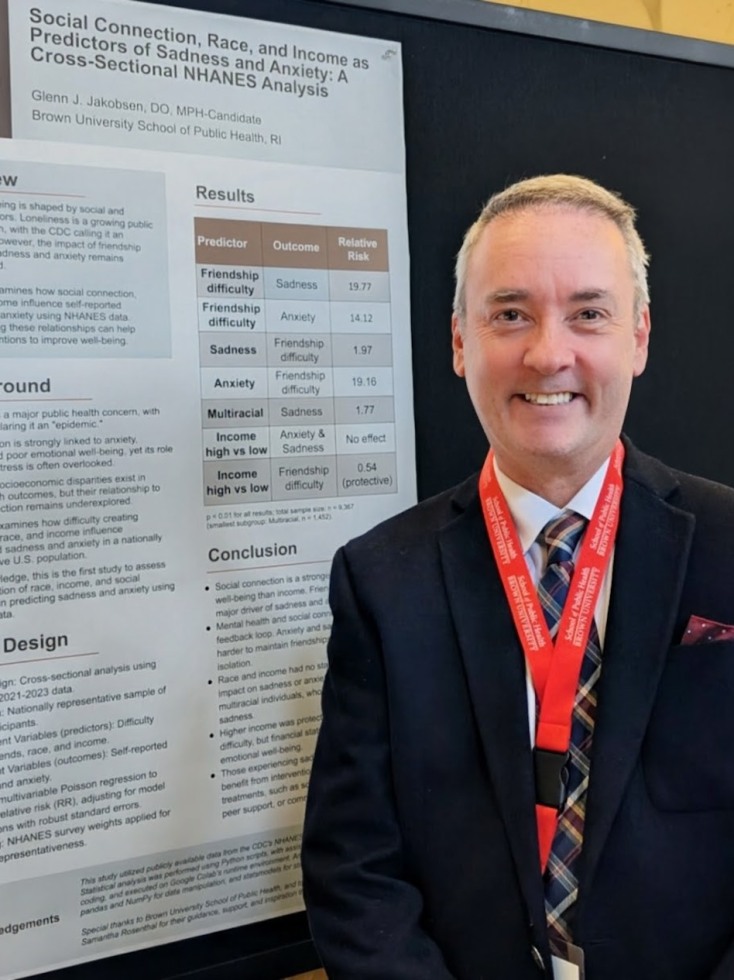_1.jpeg)
When Dr. Glenn Jakobsen, D.O., told his wife he was going back to school after more than 30 years in medicine, she laughed. He admits it did seem a little ridiculous.
But Jakobsen had been carrying a persistent question while treating patients day after day: “Is this really the only way I can make a difference?” He would see individuals struggling with multiple challenges and do what he could to help in the moment. Still, he realized he wasn’t addressing the bigger picture. The health care system itself seemed sick — and perhaps that was what most needed treatment.
That urgency only deepened as artificial intelligence (AI) began to emerge in medicine. When conversational AI appeared, Jakobsen recalled a moment of panic. While many people were experimenting with playful uses, he recognized the technology’s potential to reshape health care. “In 10 years, nothing will look the same,” he said. “And the people making those decisions? Software coders and executives who had never seen a patient.”
He knew he had to get involved. “For me, this wasn’t a midlife crisis,” Jakobsen said. “It was a moral wake-up call.”
Exploring graduate programs, Jakobsen found most required choosing between continuing his clinical work and pursuing further education. Brown University School of Public Health's online master of public health (MPH) offered something different: the ability to keep practicing medicine while studying public health. What stood out most was the program’s approach, he said. “Instead of telling me what issues I should care about, the faculty asked, ‘What are you passionate about? Let’s build on that.’”
Jakobsen admits he was skeptical about online learning at first — no campus green, no coffee shop conversations. But the weekly evening sessions quickly changed his mind.
